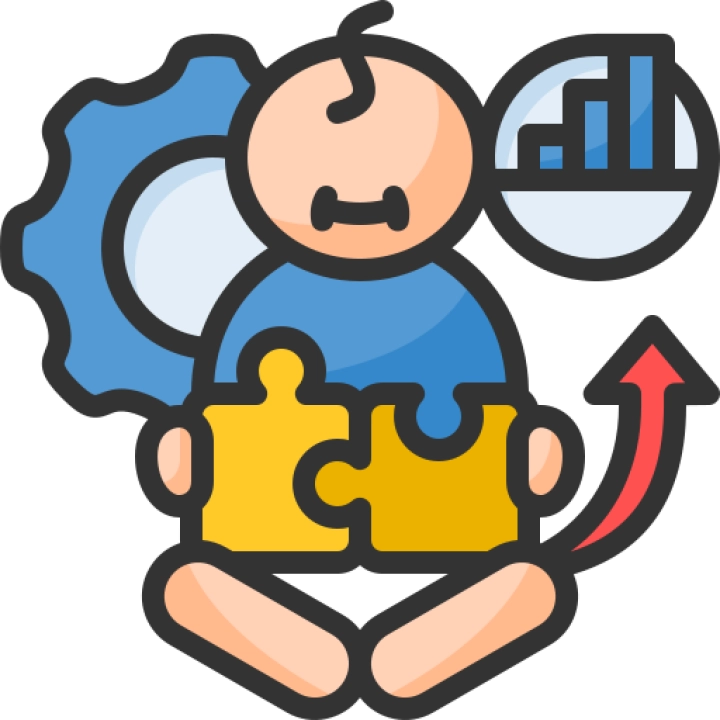Faculty: Health Sciences
The Child Development major focuses on the physical, cognitive, social, and emotional growth of children from birth through adolescence. Students develop an understanding of growth theories, research methods, and practical applications. Graduates are prepared for careers in education, social work, child psychology, and various roles within child-focused organizations.
Learning Objectives:
- Understand the basics and stages of child development.
- Develop skills in observing, evaluating, and supporting child growth.
- Learn techniques to create and implement developmentally appropriate practices.
- Explore principles of developmental psychology, education, and family studies.
- Analyze and interpret developmental data and research findings.
- Develop critical thinking, problem-solving, and practical skills for effective child development practice.
Main Syllabus:
- Introduction to Child Development
- Overview of key concepts, principles, and practices in child development.
- Basics of physical, cognitive, social, and emotional development.
- Developmental Psychology
- Principles of developmental psychology, including theories of cognitive, social, and emotional development.
- Techniques for understanding and supporting children's psychological development.
- Early Childhood Education
- Principles of early childhood education, including curriculum development, teaching methods, and learning environments.
- Techniques for creating and implementing effective early childhood education programs.
- Family Studies
- Principles of family studies, including family dynamics, parenting, and child-family interactions.
- Techniques to support families and enhance child-family relationships.
- Research Methods in Child Development
- Principles of research methods in child development, including experimental design, data collection, and analysis.
- Techniques for conducting and interpreting child development research.
- Special Education and Inclusion
- Principles of special education and inclusion, including identifying and supporting children with special needs.
- Techniques for creating inclusive educational environments and supporting diverse learners.
- Child Health and Nutrition
- Principles of child health and nutrition, including physical development, nutrition, and health promotion.
- Techniques to promote children's health and well-being.
- Practical/Applied Training
- Real-world experiences in child development settings, including internships in schools, childcare centers, or social service agencies.
- Applying learned skills in practical child development scenarios.
- Senior Project in Child Development
- A comprehensive project applying skills in developmental psychology, early childhood education, or family studies.
- Presenting a project, research study, or a well-developed program evaluation in child development.
Assessment Methods:
- Analysis in developmental psychology, early childhood education projects, family studies reports, research method papers, special education and inclusion plans, child health and nutrition studies, practical training reports, senior projects, group projects, and presentations.
Recommended Textbooks:
- "Child Development" by various authors.
- "Developmental Psychology" by various authors.
- "Early Childhood Education" by various authors.
- "Family Studies" by various authors.
- "Research Methods in Child Development" by various authors.
- "Special Education and Inclusion" by various authors.
- "Child Health and Nutrition" by various authors.
Prerequisites:
Basic knowledge of psychology and education and an interest in child development and family studies.
Duration of the Major:
Typically 4 years for a bachelor's degree, including coursework, internships, and senior projects. For advanced practice, a master's degree in child development or a related field can be pursued, typically requiring an additional one or two years.
Certification:
Graduates may earn a degree in child development and pursue additional education or professional certifications, such as those offered by the National Association for the Education of Young Children (NAEYC) or specialized certifications in fields like early childhood education or family studies.
Target Audience:
Aspiring teachers, social workers, child psychologists, and professionals seeking careers in schools, childcare centers, social service agencies, and child-focused organizations. This major equips students with the theoretical, research, and practical skills necessary to excel in child development, supporting careers in various roles focusing on children’s growth and well-being.






















